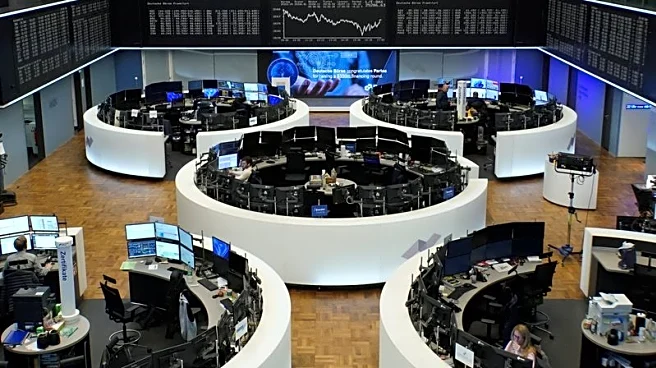What's Happening?
Industry experts have identified several pressing supply chain challenges that require urgent attention. Key issues include the lack of real-time visibility, congestion at ports, environmental threats, and the impact of shifting tariffs. Fragmentation
within supply chains, characterized by siloed systems and poor coordination, is a major vulnerability that increases costs and reduces agility. The misuse of tariff loopholes and cargo fraud are also significant concerns, with fraud costing the industry billions annually. Experts emphasize the need for integrated data systems, proactive risk management, and diversified sourcing to enhance resilience and efficiency.
Why It's Important?
The highlighted supply chain challenges have broad implications for global trade and economic stability. Real-time visibility and integrated data systems are crucial for responding to disruptions and maintaining efficient operations. Congestion at ports and environmental threats can lead to significant delays and increased costs, affecting manufacturing and consumer demand. The misuse of tariff loopholes and cargo fraud undermine trust and competitiveness within the industry. Addressing these issues is essential for building resilient supply chains that can navigate economic uncertainties and geopolitical shifts.
What's Next?
To address these challenges, industry leaders must prioritize investments in technology and data integration to improve visibility and coordination. Proactive risk management strategies, including scenario planning and supplier diversification, are necessary to mitigate environmental and geopolitical risks. Strengthening enforcement against tariff misuse and cargo fraud will help protect the integrity of supply chains. As the industry adapts to these changes, collaboration among stakeholders will be key to developing innovative solutions and maintaining competitiveness.
Beyond the Headlines
The supply chain challenges reflect broader economic and geopolitical dynamics, including the impact of aging populations and labor shortages. Innovative technology applications, such as artificial intelligence and automation, offer potential solutions but require cultural shifts in decision-making processes. The emphasis on transparency and ethical practices highlights the importance of trust and accountability in global trade. As supply chains evolve, the industry must balance efficiency with resilience to navigate future disruptions.
















